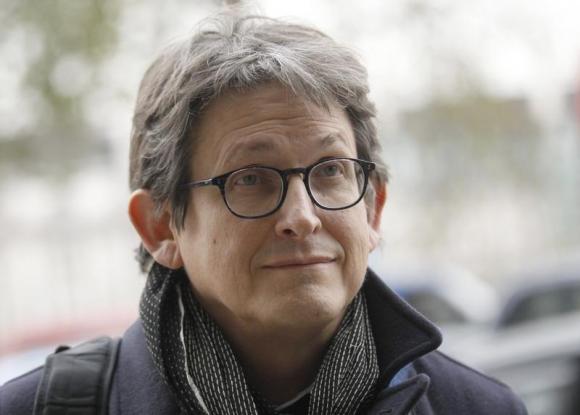(Reuters) – British police are examining whether Guardian newspaper staff should be investigated for terrorism offenses over their handling of data leaked by Edward Snowden, Britain’s senior counter-terrorism officer said on Tuesday.

The disclosure came after Guardian editor Alan Rusbridger, summoned to give evidence at a parliamentary inquiry, was accused by lawmakers of helping terrorists by making top secret information public and sharing it with other news organizations.
The Guardian was among several newspapers which published leaks from U.S. spy agency contractor Snowden about mass surveillance by the National Security Agency (NSA) and Britain’s eavesdropping agency GCHQ.
Assistant Commissioner Cressida Dick, who heads London’s Specialist Operations unit, told lawmakers the police were looking to see whether any offenses had been committed, following the brief detention in August of a man carrying data on behalf of a Guardian journalist.
Security officials have said Snowden’s data included details of British spies and its disclosure would put lives at risk. Rusbridger told the committee his paper had withheld that information from publication.
It appears possible once we look at the material that some people may have committed offenses, Dick said. “We need to establish whether they have or they haven’t.
David Miranda, the partner of journalist Glenn Greenwald who brought the Snowden leaks to world attention, was questioned under anti-terrorism law when he landed at London’s Heathrow Airport en route from Berlin to Rio De Janeiro, Brazil, and computer material he was carrying was seized.
Lawmakers put it to Rusbridger that he had committed an offence under Section 58A of the Terrorism Act which says it is a crime to publish or communicate any information about members of the armed forces or intelligence services.
It isn’t only about what you’ve published, it’s about what you’ve communicated. That is what amounts, or can amount, to a criminal offence, said committee member Michael Ellis.
Asked later by Ellis whether detectives were considering Section 58A offenses, Dick said: “Yes, indeed we are looking at that.
Earlier on Tuesday, the Guardian published a letter of support from Carl Bernstein, the U.S. journalist who helped expose the Watergate scandal in the 1970s.
Bernstein, 69, said Rusbridger’s appearance before the committee was a dangerously pernicious attempt by British authorities to shift the focus of the surveillance debate from excessive government secrecy to the conduct of the press.
STORED SECURELY
During his testimony, Rusbridger defended his decision to publish the leaks and said the paper had used less than one percent of the information and kept the rest stored securely.
We have published I think 26 documents so far out of the 58,000 we’ve seen, or 58,000 plus. So we have made very selective judgments about what to print,” he said. “We have published no names and we have lost control of no names.
Guardian articles over the last six months have shown that the United States and some of its allies, including Britain, were monitoring phone, email and social media communications on a previously unimagined scale.
The revelations provoked diplomatic rows and stirred an international debate on civil liberties. Britain’s security chiefs said the leaks were a boon to the country’s enemies who were “rubbing their hands with glee”.
Snowden, who is believed to have downloaded between 50,000 and 200,000 classified NSA and British government documents, is living in Russia under temporary asylum. He has been charged in the United States under the Espionage Act.
Countering criticism by lawmakers, Rusbridger said more emphasis was being given to the Guardian’s decision to publish the leaks than to the fact they had been so easily obtained in the first place.
We were told that 850,000 people … had access to the information that a 29-year-old in Hawaii who wasn’t even employed by the American government had access, he said.
(Additional reporting by Freya Berry and Silvia Antonioli; Editing by Robin Pomeroy)





